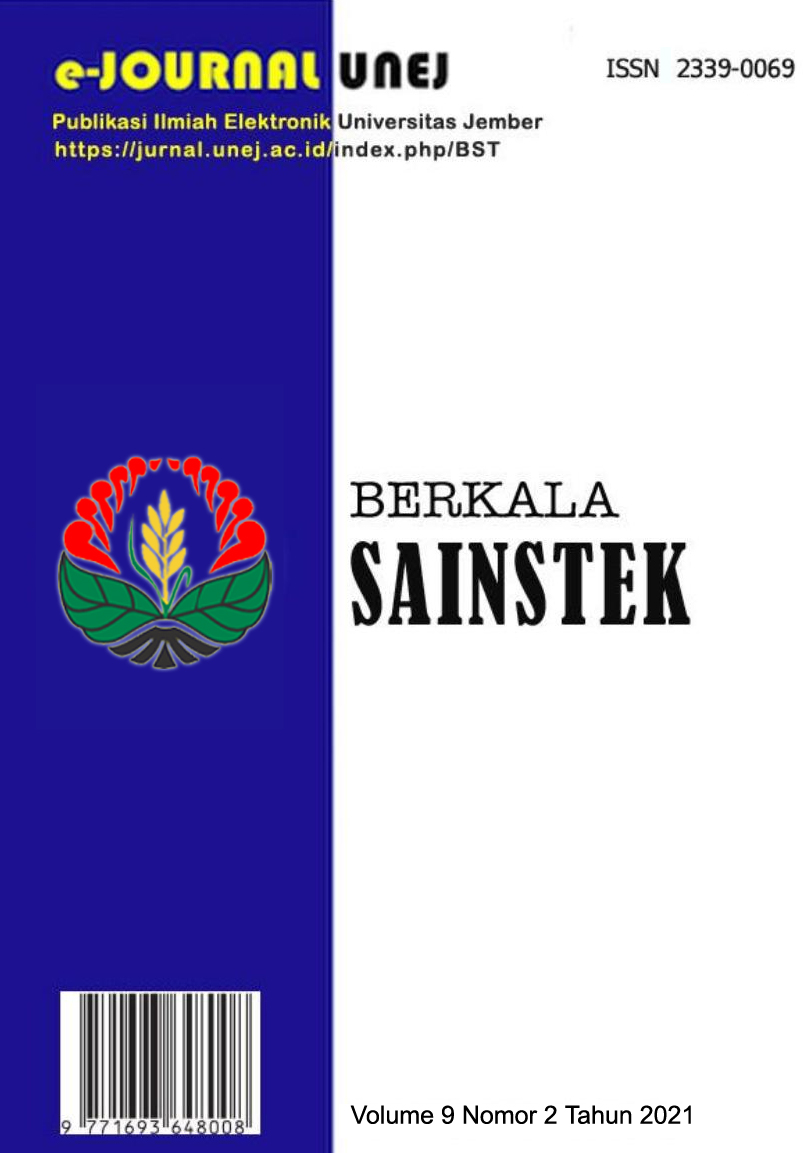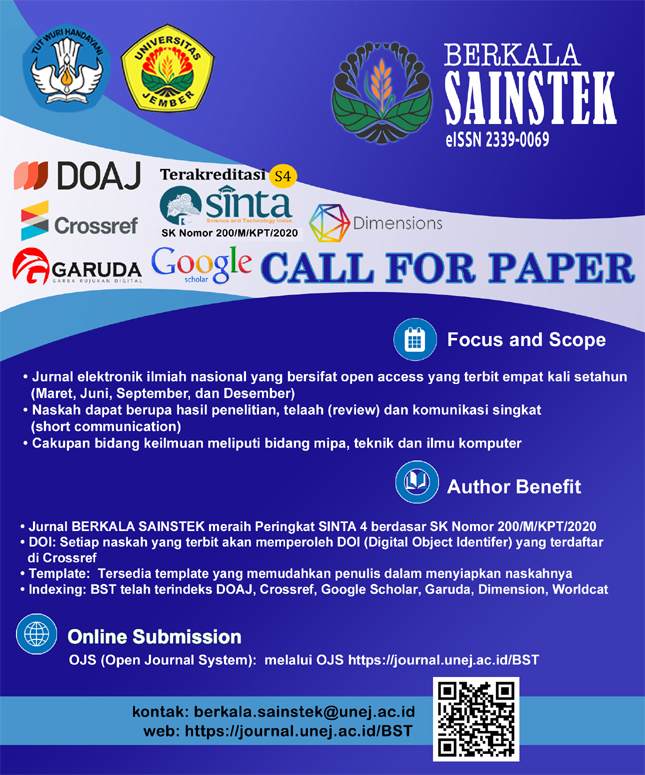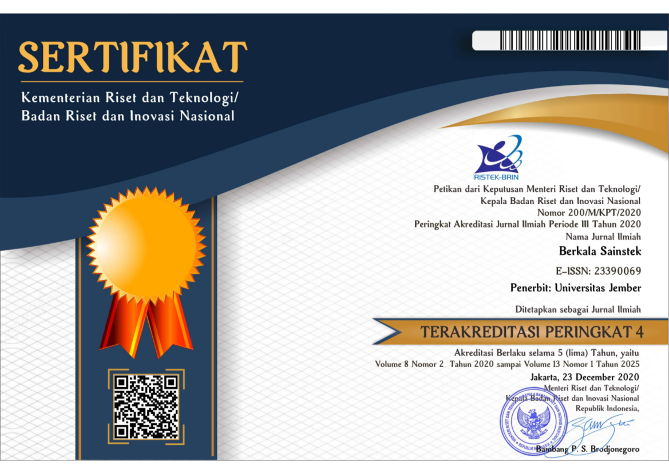Abundance and potency of Non-Symbiotic Nitrogen-Fixing Bacteria in Padang Sapu-sapu, Pejem Village, Bangka
DOI:
https://doi.org/10.19184/bst.v9i2.20057Keywords:
abundance, potency, non-symbiotic N2-fixing bacteria, padang sapu sapu, BangkaAbstract
Padang sapu-sapu soil is similar with post-tin mining soil in its white sand texture and poor nutrient. One factor causes the disturbed land in Bangka Belitung islands is tin mining activity. One method to rehabilitate marginal soil is by utilizing the potential nonsymbiotic N2-fixing bacteria, which are able to fertilize the soil and is able to provide macro nutrient. This study aims to measure the abundance and potency of non-symbiotic N2-fixing bacteria in padang sapu-sapu, Pejem Village, Bangka. The site selection is determined by purposive sampling method and interviews and the samples were collected randomly. Isolation used selective media Ashby'`s Monitol Agar and Azospirillum media. Morphological characterization was conducted on isolates and a series selective test was carried out, i.e. hipersentivity test, hemolysis test, IAA phytohormone test and nitrogenase test. The study of the abundance population of non-symbiotic N2-fixing bacteria of two different locations showed that the total bacterial population in padang sapusapu is very small compared to its lowland forest. Isolate Azotobacter sp. TH105(a) from the lowland forests is potential as natural fertilizer.






